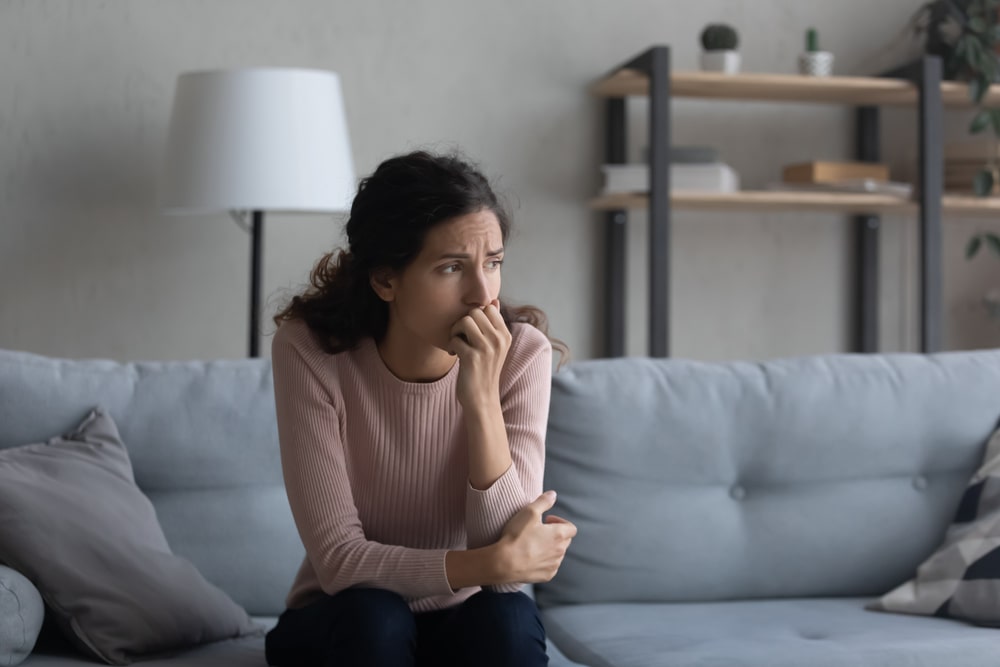Mindfulness-based therapy, often referred to as mindfulness-based cognitive therapy (MBCT), is a specialized therapeutic modality that originated as a relapse prevention approach for recurrent depression. Verywell Mind explains that MBCT is a “type of psychotherapy that involves a combination of cognitive therapy, meditation, and the cultivation of a present-oriented, non-judgmental attitude called ‘mindfulness.’” Mindfulness is the conscious practice of being aware of one’s own thoughts, feelings, and emotions. The goal of cognitive therapy is to help an individual retire outdated, negative, debilitating thought patterns, and creating new, heathier ways of thinking. MBCT has been shown to offer several benefits for individuals struggling with anxiety, such as:
- Strengthened mind-body connection: Anxiety often manifests as somatic symptoms (e.g., muscle tension, rapid heartbeat, shallow breathing, etc.). Mindfulness practices emphasize the mind-body connection, helping individuals recognize and release physical tension, which can reduce anxiety.
- Reduced rumination: Individuals with anxiety often repeatedly think about the same anxious thoughts or scenarios. Mindfulness practices can disrupt this cycle by encouraging individuals to remain in the present moment rather than dwelling on the past or worrying about the future. A review study at Johns Hopkins University School of Medicine concluded that “meditation appeared to provide as much relief from some anxiety and depression symptoms as … antidepressants.”
- Improved emotional regulation: MBCT teaches individuals skills to better tolerate and accept difficult emotions rather than trying to avoid or suppress them. This can lead to improved emotional regulation, reducing the intensity of anxiety-related symptoms. A mindfulness-based cognitive therapy study found that students who practiced mindfulness reduced their anxiety, excessive worry, and negative thought patterns.
- Coping skills: MBCT helps individuals cultivate an armory of effective coping strategies (e.g., deep breathing, meditation, grounding exercises, etc.) that can be drawn upon when faced with anxiety triggers.
According to Good Therapy, “MBCT helps participants learn how to recognize their sense of being and see themselves as separate from their thoughts and moods. This disconnect can allow people to become liberated from thought patterns in which the same negative messages may be replayed over and over.” Mindfulness based cognitive therapy works first by helping an individual learn to identify and understand harmful thoughts, feelings, and/ or patterns in his or her life. The MBCT method then encourages the individual, with the help of his or her clinician, to use the revealed negative thoughts, feelings, and/ or patterns, and adjust them to create more positive and successful patterns, feelings, and/ or thoughts. This is typically accomplished by using specific examples that have surfaced during one’s therapy sessions. After practicing this method repeatedly, using different examples, and applying the method to several different areas of one’s life, an individual can modify his or her dysfunctional thinking.
Treatment In Calabasas
Calabasas is a city in California. It is a well-known suburb of Los Angeles, located west of the San Fernando Valley and north of the Santa Monica Mountains. Over the past decade, the city of Calabasas has grown in its reputation for luxury as well as for privacy which makes it a hidden gem for residential living for society’s elite, and one of the most desirable destinations in Los Angeles County. It is also home to a plethora of highly qualified mental health clinicians providing an array of therapeutic services and treatment options.
The information above is provided for the use of informational purposes only. The above content is not to be substituted for professional advice, diagnosis, or treatment, as in no way is it intended as an attempt to practice medicine, give specific medical advice, including, without limitation, advice concerning the topic of mental health. As such, please do not use any material provided above to disregard professional advice or delay seeking treatment.


